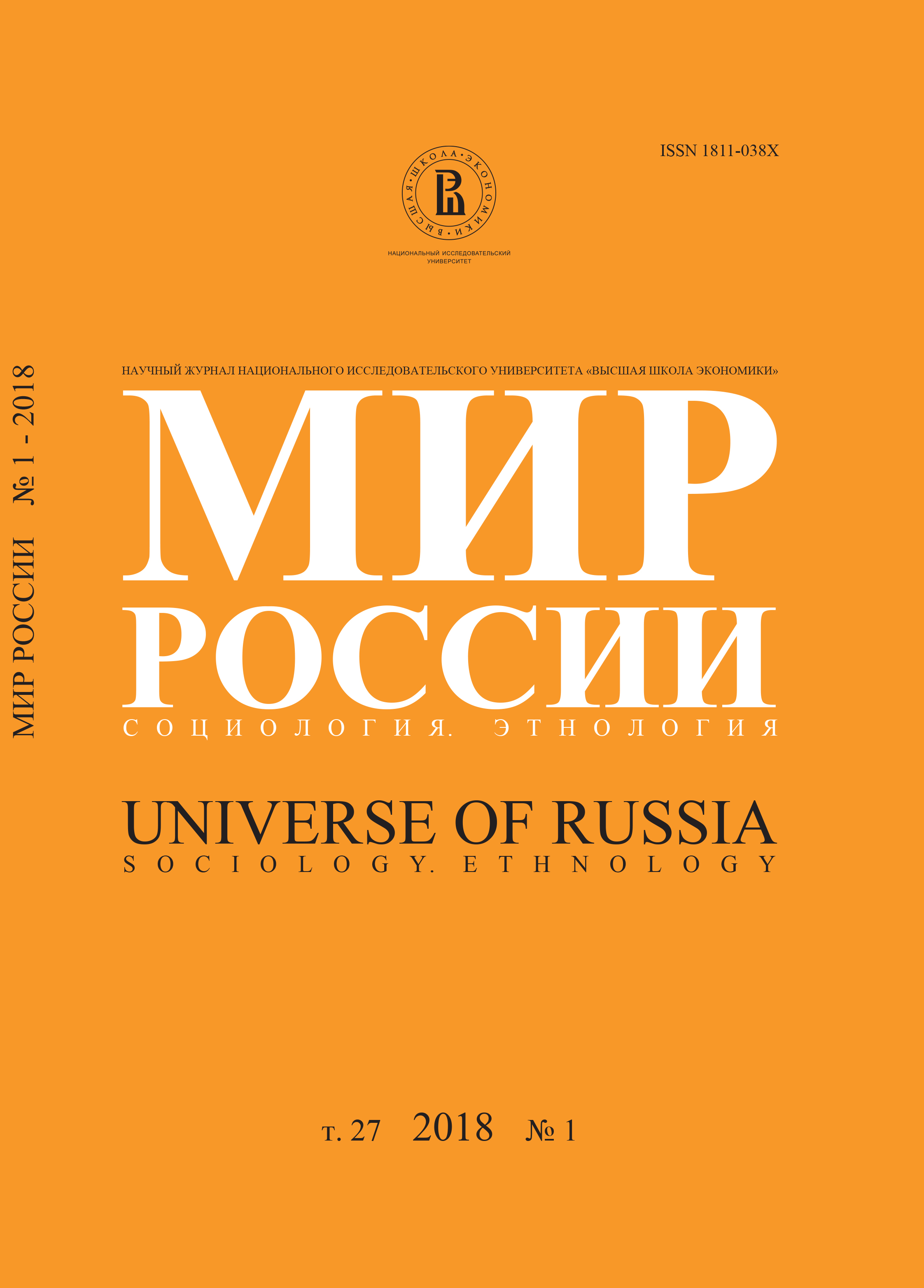Status Culture in the Times of Economic Transformation. Cultural Participation in Saint Petersburg, 1991-2011
Abstract
Mikhail Ille – Senior Lecturer, Department of Philosophy and Communication Studies, Saint Petersburg University of Civil Aviation; Editor, “The Telescope: Journal of Sociological and Market Research” Address: of. 508, 14, Izmajlovkij Av., Saint Petersburg, 190005, Russian Federation. E-mail: red_tel@mail.ru
Mikhail Sokolov – Candidate of Science in Sociology, Professor, Political Science and Sociology Department, European University at Saint Petersburg. Address: 3a, Gagarinskaya St., Saint Petersburg, 191187, Russian Federation. E-mail: msokolov@eu.spb.ru
Citation: Ille M., Sokolov M. (2018) Status Culture in the Times of Economic Transformation. Cultural Participation in Saint Petersburg, 1991-2011. Mir Rossii, vol. 27, no 1, pp. 159–182 (in Russian). DOI: 10.17323/1811-038X-2018-27-1-159-182
What happens to the consumption of high culture during an economic crisis? We address this question in the context of the economic crisis of the 1990s, when the intelligentsia, who are often regarded as the traditional guardians of high culture, were the principal victims of the transformation. An intuitively appealing proposition, often cited in Russia as self-evident, is that the outcome must be a decline in cultural participation rates reflecting both the absolute decrease in the population’s purchasing power and the loss of prestige of the intelligentsia lifestyle. In the Russian case, this effect is often believed to be magnified by the advent of new media and new artistic genres, which presumably replaced old-fashioned forms of high culture consumption such as opera going. All three effects are allegedly salient among younger generations. We use the results of the Saint Petersburg Survey of Cultural Participation (1991-2011) to test if these propositions are correct. Our findings counter the wide spread beliefs by showing that (1) there were only moderate changes in the levels of cultural participation, and high culture showed much less income elasticity, than mass culture (e.g. opera lost a smaller proportion of its audience than cinema); (2) income had a small effect on the probability of cultural participation; (3) during the whole period, younger people were the most eager consumers of high culture. In the second part of the paper we discuss this evidence in the light of various theories of status culture, and argue that the Russian case runs counter to reductionist theorizing (Veblen, Bourdieu) which assumes that cultural capital functions as a symbol of class membership.






